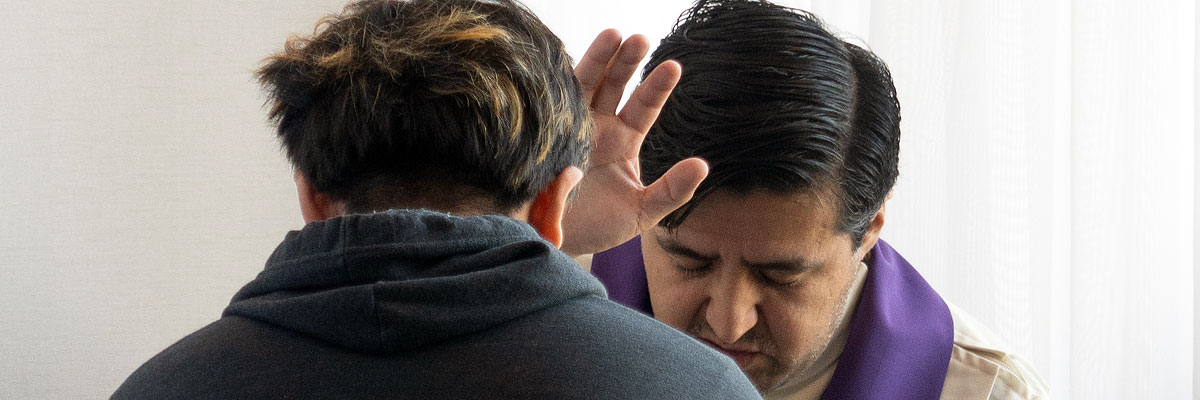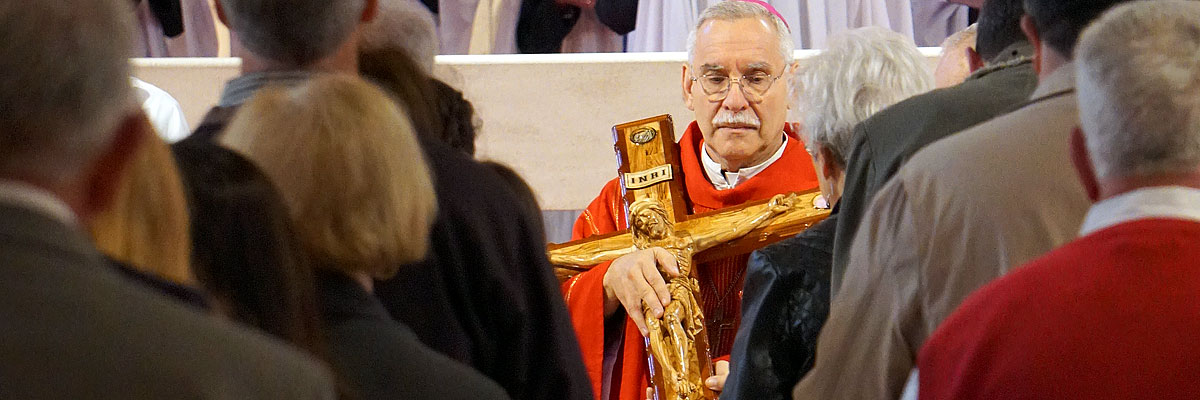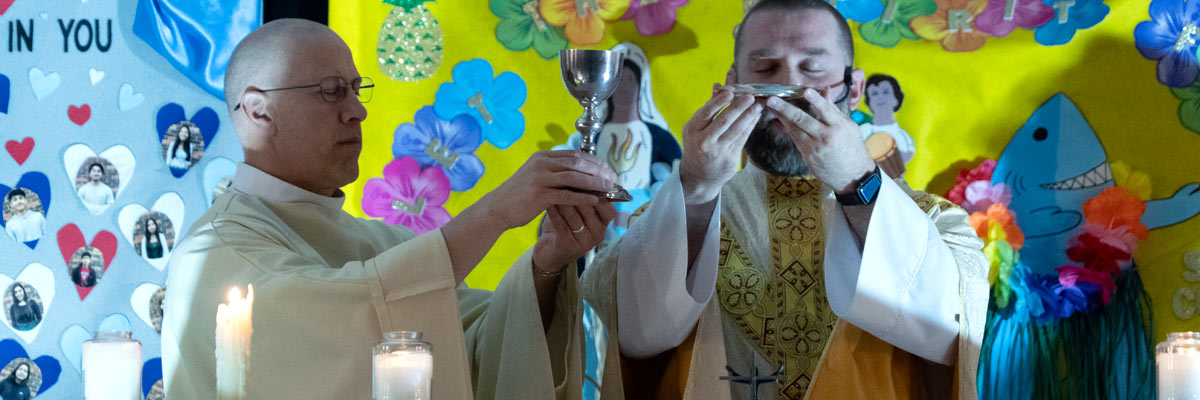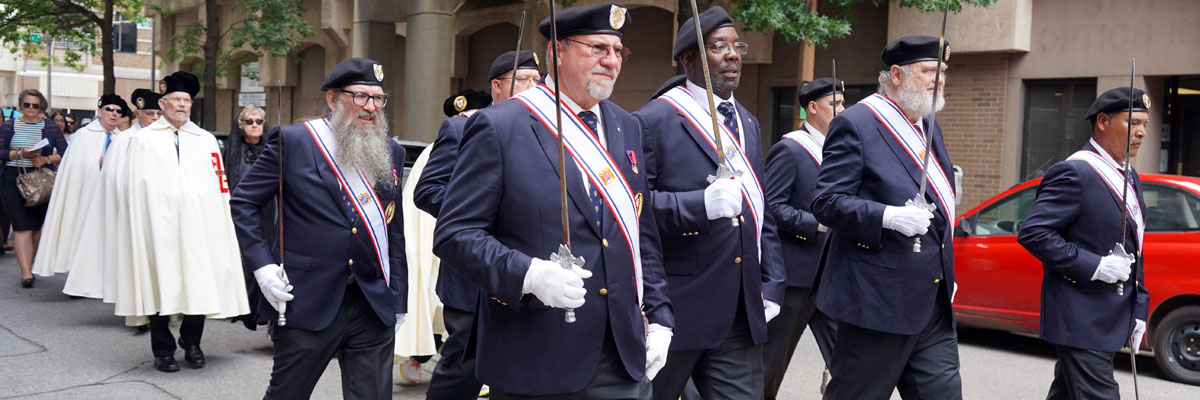Official Website of the
Catholic Diocese of Little Rock
Divine Mercy Sunday 2020
Published: April 19, 2020
Bishop Anthony B. Taylor preached the following homily at the Diocese of Little Rock House of Formation in Little Rock on Sunday, April 19, 2020.

Bishop Taylor
Exactly 25 years ago today at 9:02 in the morning, I was in my rectory when I felt and heard what I thought was a huge sonic boom, which I supposed was a low flying plane from Tinker Air Force Base east of Oklahoma City.
But of course, I soon learned that it was the bombing of the federal building by Timothy McVeigh and his accomplice Terry Nichols, the deadliest act of homegrown terrorism in U.S. history. 168 people died — 19 of them children in a day care center and three more in the womb of their pregnant mothers, so actually 171 people died — and about 700 people were injured, some gravely.
I had two of the funerals: Tony Reyes, an equal opportunity specialist for the Department of Housing and Urban Development, and Ethel Griffin, a service representative for the Social Security Administration. Two people who had made a career — dedicated their life — to helping others. Those were hard funerals.
And so he says also to us, “Peace be with you” and he shows us also the wounds by which we were saved, the wounds that were the cost of loving us to the end, the wounds that reveal that it really is him and that the mercy he brings us is real too.
How do you speak of God’s mercy and forgiveness in the face of evil of this magnitude? McVeigh got eye-for-an-eye justice of a sort and was executed in 2001, but his death brought us no peace … indeed, the fear is that he might become a folk hero to some far-right fringe groups.
Nichols got mercy, in the sense that his life was spared, and has spent 25 years behind bars, giving him a chance to repent and maybe find peace, indeed maybe even to do something positive with the rest of his life. And even if he doesn’t, we have — at least to some degree — taken the high road in his regard.
Today, on Divine Mercy Sunday, we see that God has taken the high road in our regard. What is the first thing Jesus said when he appeared to his disciples in today’s Gospel? He said: “Peace be with you.”
There were two reasons he started his first post-resurrection appearance this way: 1.) He knew his followers were worried about their future — distraught over Jesus’ death and the way that all of their hopes appeared to have come to nothing; and 2.) He knew that they would have a hard time facing him because he was the very person against whom they had sinned so gravely, abandoning him and denying him just two days earlier, despite many promises to stick with him no matter what.
And yet Jesus takes the high road. He knew they had been terrified when the soldiers came and he knew that now they were filled with regret and grief and fear. That’s why the doors were locked, they were afraid that Jesus’ enemies would now come after them. Jesus loved them despite it all, so for a second time he said: “Peace be with you” and then he set out to prove to them that he was for real and so his mercy also was for real — he showed them his hands and his side.
Indeed, he did the same thing again a week later, when doubting Thomas was present, inviting him to put his finger into the nail marks and his hand into his side, proving that he was not a ghost come back to haunt them for having abandoned him. You could touch him. He was real and the peace, the mercy he came to bring them was real too.
He took the high road, not just forgiving them but also empowering them, sending them — making them “apostles” in the full sense of the term: “those who are sent.” He said: “As the Father has sent me, so I send you.” Then he breathed on them, saying ,“Receive the Holy Spirit, whose sins you forgive are forgiven them, and whose sins you retain are retained.” They receive divine mercy and then Jesus sends them forth to bring that same mercy to others.
You and I resemble those apostles. We too are worried about our future and we too are sinners, despite many promises to stick with Jesus and do the right thing, no matter what. And just like those apostles 2,000 years ago, Jesus loves us despite all this.
And so he says also to us, “Peace be with you” and he shows us also the wounds by which we were saved, the wounds that were the cost of loving us to the end, the wounds that reveal that it really is him and that the mercy he brings us is real too.
He forgives us, heals the often self-inflicted wounds in our own soul with his divine mercy, and then sends us forth to bring that same mercy to others.









